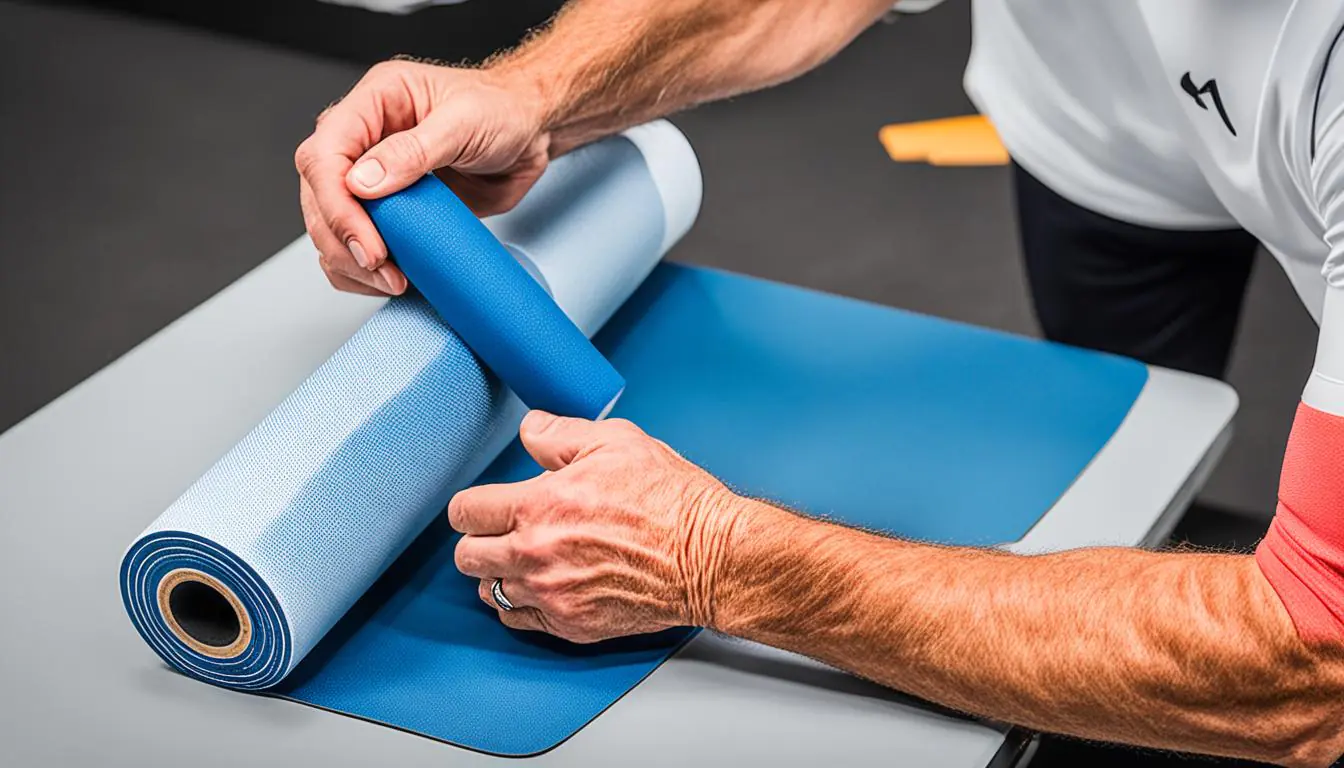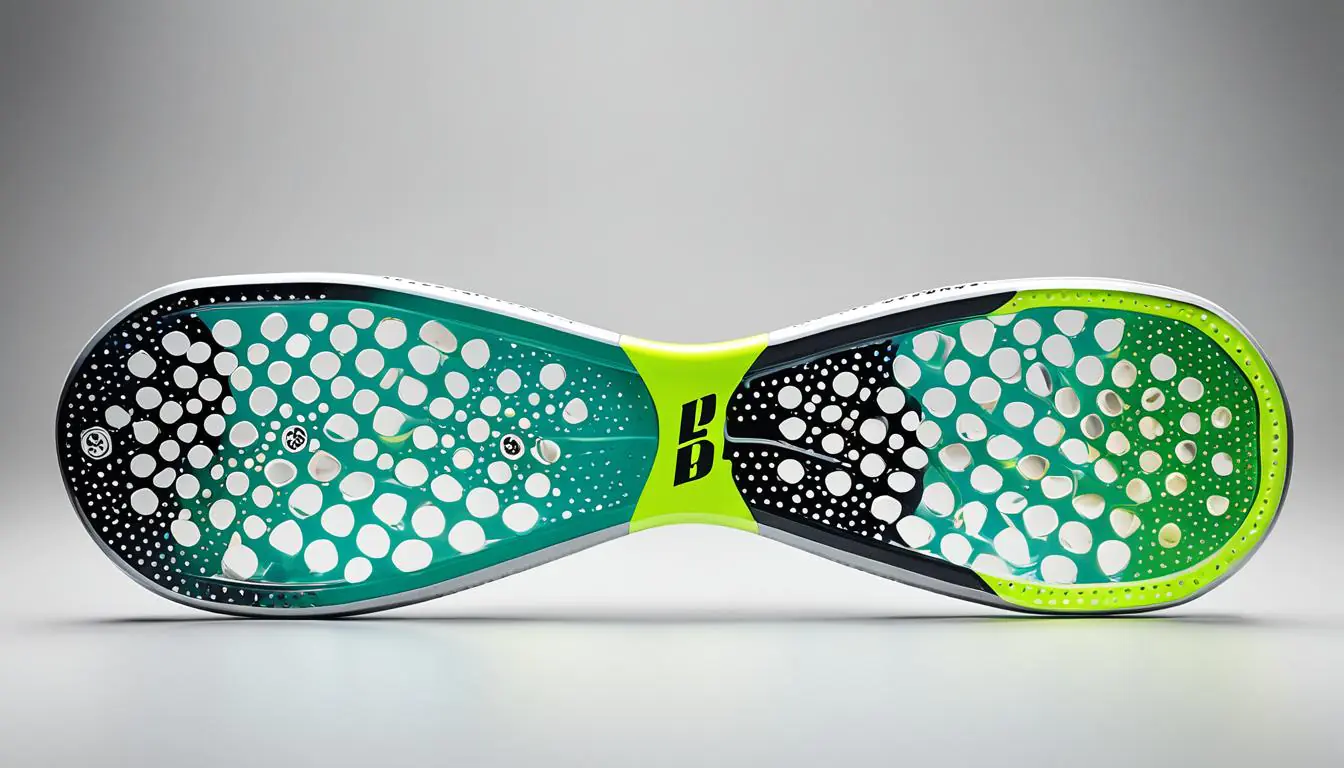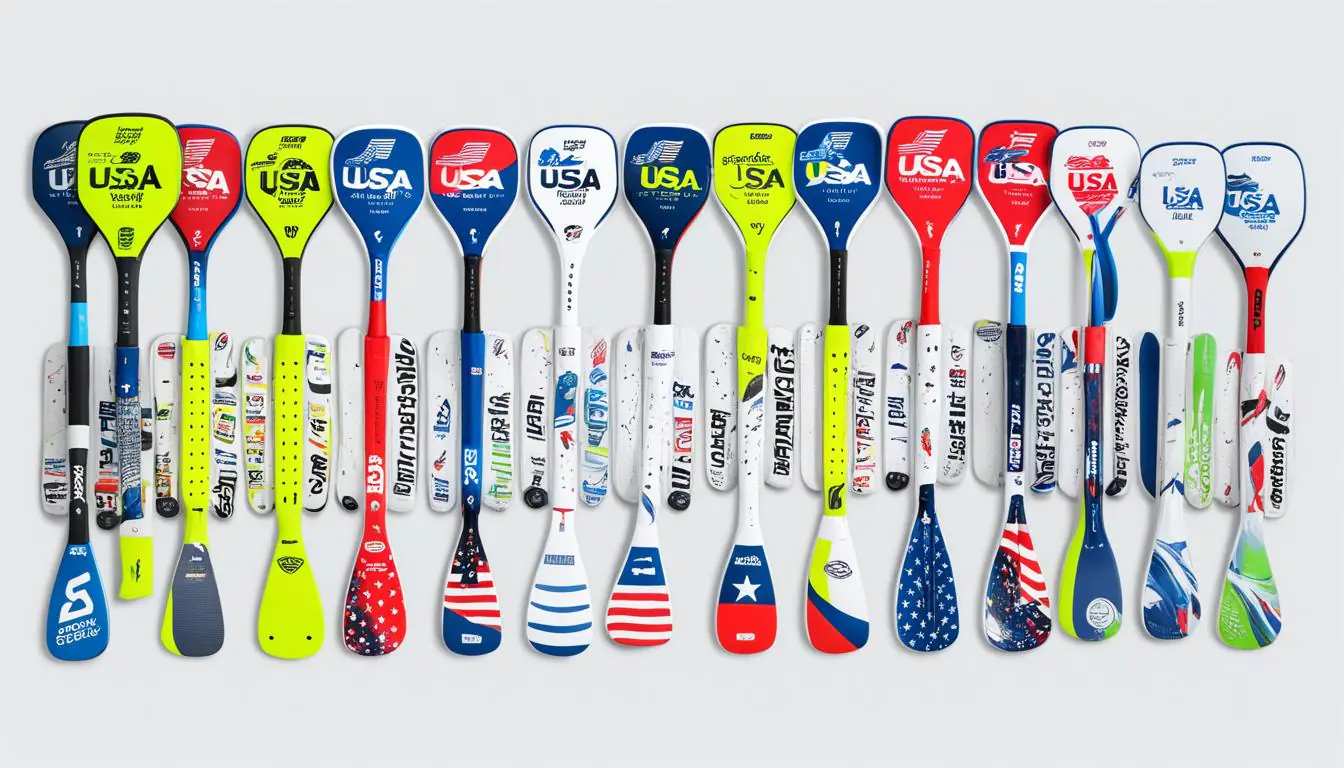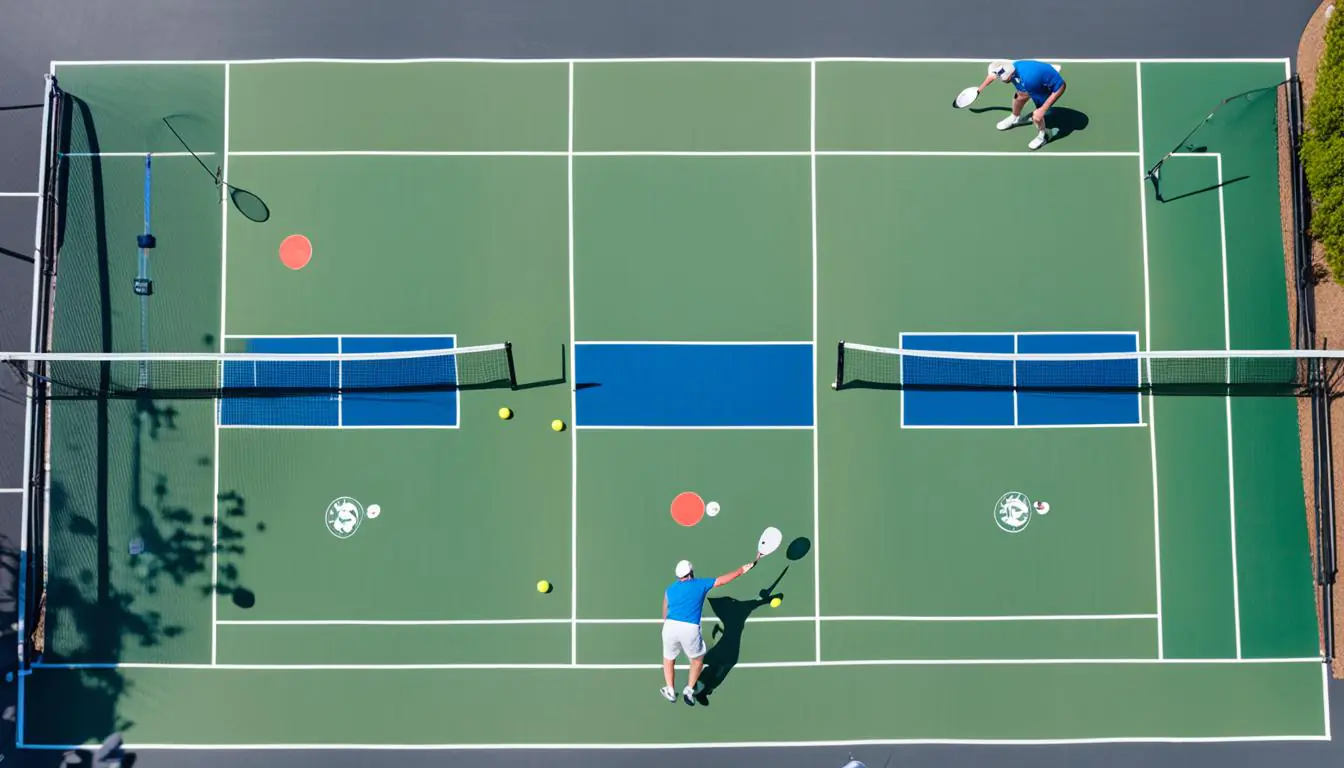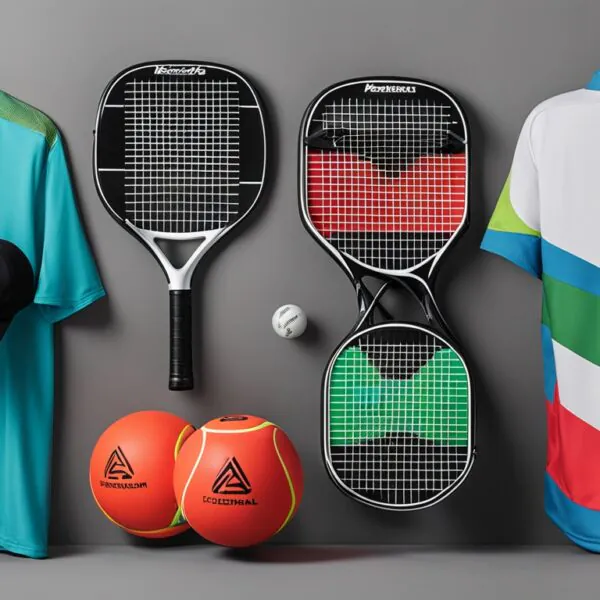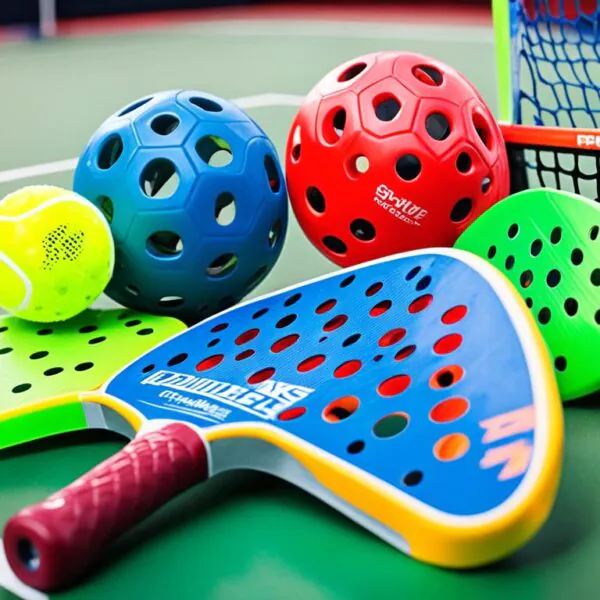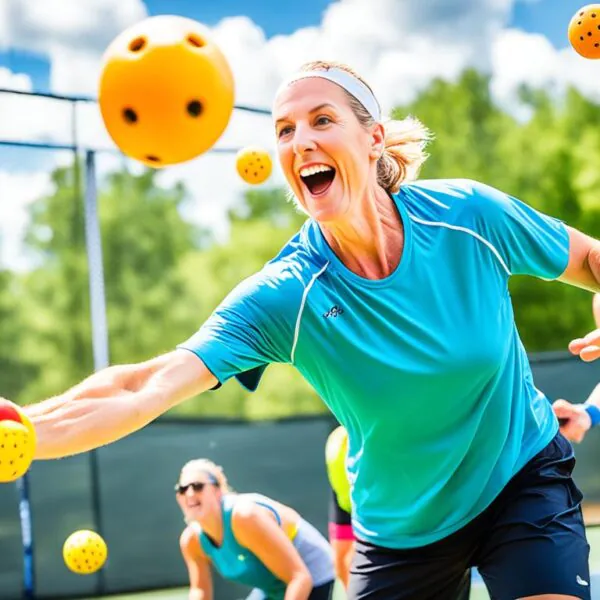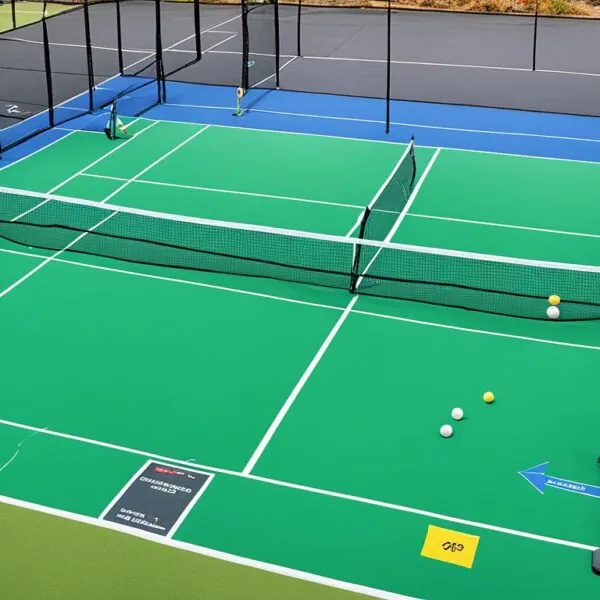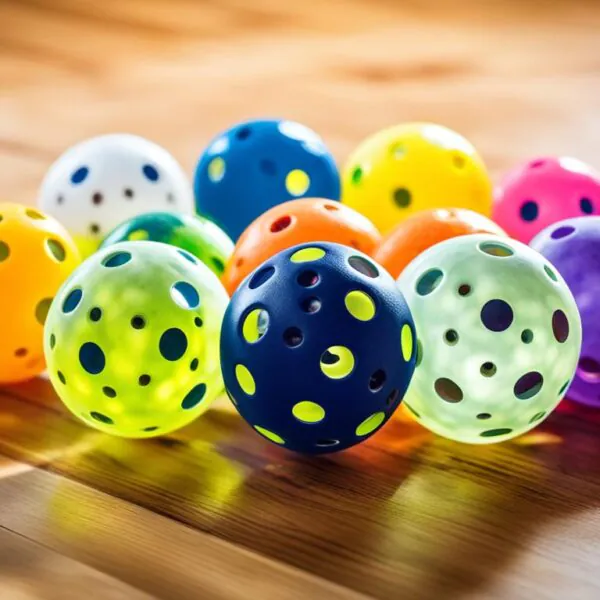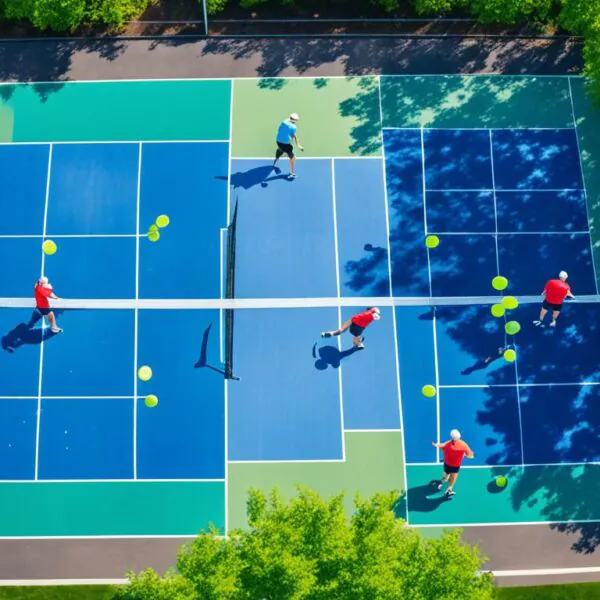Did you know nearly 70% of pickleball players say their grip affects their game a lot? Learning how to wrap a pickleball paddle can really improve your game. A good wrap helps with grip control, making your paddle easier to move and stable during play.
There are many pickleball paddle wrapping techniques to try. Wrapping your paddle is key for comfort and using your grip style well. I’ll share tips on grip styles and how to adjust for different shots.
Learning the best way to wrap a pickleball racket makes your paddle work better and last longer. Let’s dive into this important part of getting ready for pickleball.
Key Takeaways
- A proper grip can significantly influence performance during games.
- Finding the most effective grip style, such as Eastern or Continental, is essential for comfort and control.
- Adjusting grip pressure can enhance shot execution and adaptability on the court.
- Experimenting with different grips is advisable for finding the best fit for your playing style.
- Regular practice helps in mastering the art of holding and wrapping your pickleball paddle.
Understanding the Importance of a Proper Grip in Pickleball
How I hold my pickleball paddle really changes my game. It affects how accurate, powerful, and controlled my shots are. Knowing how grip affects performance lets me pick the best grip for me.
How Grip Affects Your Performance
Pickleball has different grips like the Continental, Eastern, and Western. Each common grip style in pickleball has its own benefits:
- Continental Grip: Also called the hammer grip, it’s good for backhands and dinks.
- Eastern Grip: Beginners and those in the middle levels like it for easy shots.
- Western Grip: Great for strong forehands and topspin, but harder for backhands.
Most start with the Eastern grip for its flexibility. Changing grips during a game can improve shots, but it’s hard because the game moves fast. For better players, small grip changes can help adapt during matches.
Common Grip Styles Explained
Mastering each grip takes practice. The two-handed backhand grip helps with backhand shots. Keeping grip pressure at 3-4 out of 10 helps control without losing feel.
A full Pickleball paddle grip wrapping guide shows grip placement is key for control, power, and better shots. Knowing these grips helps me play better, making shots smoother and more effective.
Choosing the Right Materials for Paddle Wrapping
Choosing the right grip tape for your pickleball paddle is key to better performance. The right grip helps me control and feel comfortable during games. It’s important to know the different grip tapes out there to pick the best one for me.
Types of Grip Tape Available
There are two main types of grips for pickleball paddles: overgrips and replacement grips. Each type has its own benefits for different players.
- Overgrips: These are easy to put on and take off. They stick well and soak up sweat, perfect for quick changes during a game. Overgrips come in many materials like synthetic or leather, with different thicknesses and textures. This helps reduce vibration and improve grip. They also come in many colors, so you can customize your paddle.
- Replacement Grips: These grips last longer and give more cushioning. They’re great for players who want extra comfort and shock absorption. You can choose from materials like polyurethane, silicone, or cork, each with its own benefits.
Factors to Consider When Selecting Grip Tape
When picking grip tape for pickleball, think about more than just what feels good. Comfort, texture, and how well it keeps moisture away are all important for a good grip.
- Comfort: Getting the right grip size is key to avoiding fatigue and injury. Make sure to measure your hand to find the best fit.
- Texture: A new texture helps keep control. Thicker overgrips can also give extra cushioning to lessen shock from hard shots.
- Moisture-Wicking: Choosing grips that absorb moisture is crucial for players with sweaty hands. It keeps your grip dry and secure during play.
Changing grips often keeps your paddle in top shape, especially if you play a lot. Good overgrips can make your control and comfort better, which helps your game. I suggest looking at brands like Gamma and ProLite for their quality and variety of grips.
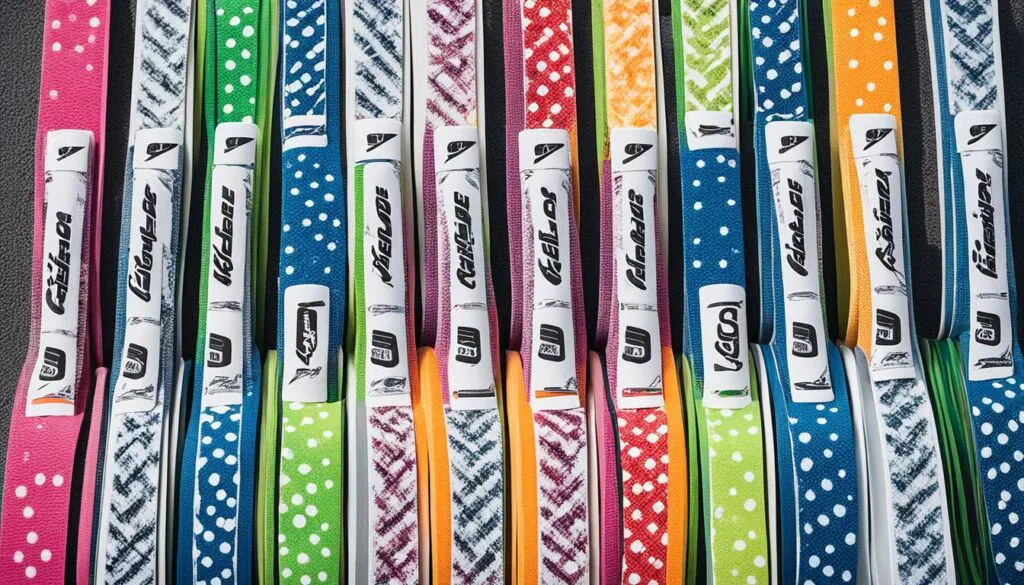
How to Wrap a Pickleball Paddle
Wrapping a pickleball paddle makes it better for playing. It makes the grip more comfortable and secure. Here’s a step-by-step guide to wrap your paddle like a pro.
Step-by-Step Guide for Wrapping Your Paddle
Wrapping a paddle is quick and easy. Follow these steps to update your gear fast:
- Gather your materials: a pickleball paddle, an overgrip, scissors, and finishing tape.
- Carefully remove the plastic from the grip.
- Position the grip at the bottom of the handle, ensuring a slight overlap.
- As you wrap, maintain an angle of 30 to 45 degrees around the butt cap, adjusting the overlap based on your preference.
- Trim any excess grip material at a 45-degree angle to avoid bulging.
- Secure the grip using finishing tape to keep it intact during play.
Tips for Achieving a Smooth Finish
For a professional look, follow these tips:
- Keep your hands close to the paddle for better control while wrapping.
- Change grips when traction diminishes; overgrips offer an economical replacement.
- Consider the grip type: replacement grips provide a thinner feel, while overgrips are ideal for players who sweat frequently.
- Finishing tape not only secures the grip but also enhances its aesthetics.
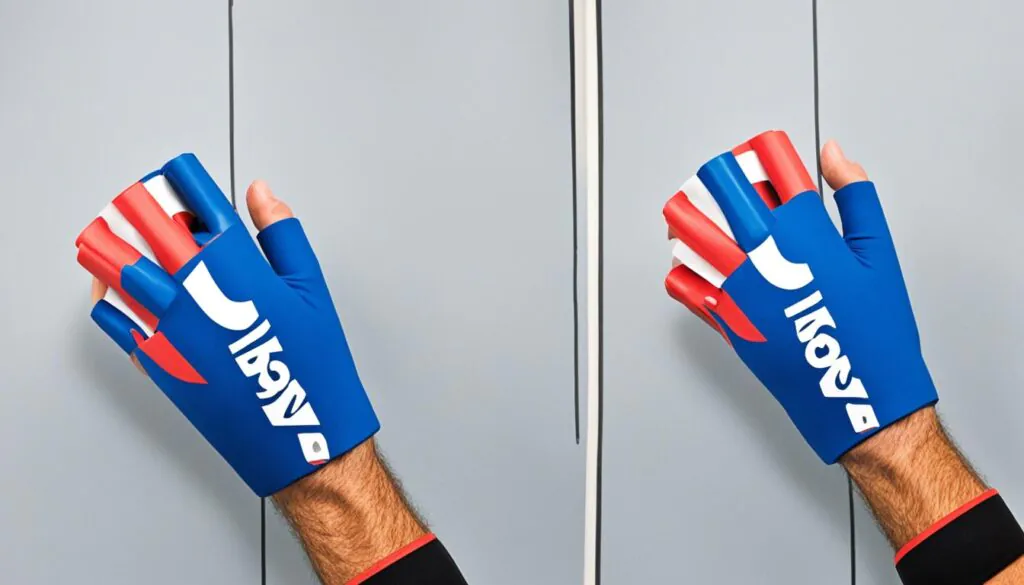
For more tips on improving your pickleball game, visit pickleballcabin.com.
Pickleball Paddle Wrapping Techniques
Wrapping a pickleball paddle can make a big difference in your game. There are two main ways to wrap a paddle: edge-to-edge and overlap methods. Each has its own benefits for different players.
Edge-to-Edge vs. Overlap Wrapping Methods
The edge-to-edge method makes the paddle look smooth. It’s great for players who like a clean look. It covers the whole handle without any gaps.
Overlap wrapping puts grip tape on top of itself. This creates grooves for your fingers and adds extra cushioning. It makes the paddle feel thicker, which some players like for better control.
- Edge-to-edge wrapping methods: Provides a uniform appearance and feels smooth.
- Overlap paddle wrapping techniques: Offers increased grip customization and comfort with layered cushioning.
How to Trim Grip Tape for a Clean Finish
Getting a clean finish on your paddle is key for looks and safety. I use a sharp knife to cut the tape evenly. Leaving a bit of overlap at the top helps, especially for shorter handles. Finishing tape keeps the grip from coming off during play.
Here’s a quick guide on finishing steps:
- Start wrapping from the bottom of the handle.
- Trim areas for a snug fit, ensuring the top is overlapped slightly.
- Secure with finishing tape to keep everything in place.
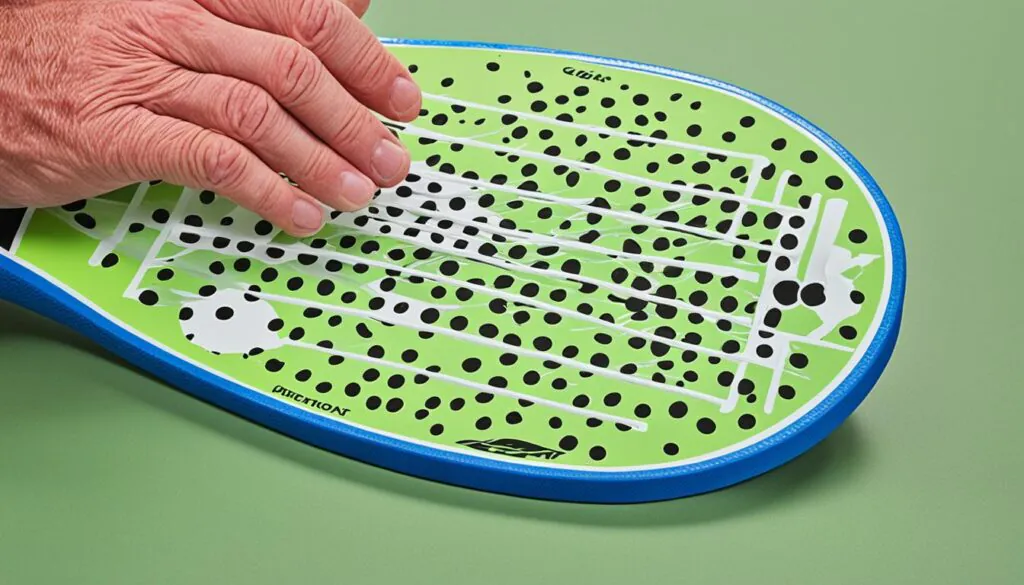
DIY Pickleball Paddle Wrapping Tips for Better Control
Wrapping your pickleball paddle right makes you play better and feel more comfortable. I’ve found some tips to help you wrap your paddle like a pro. Knowing what mistakes to avoid and using the right tools can make a big difference.
Common Mistakes to Avoid When Wrapping
Many players run into problems when they wrap their paddles. Here are some mistakes to watch out for:
- Wrapping too tight can make it uneven and uncomfortable.
- Not prepping the handle right makes the grip tape not stick well.
- Starting wrong can mess up the alignment.
- Adding too much grip tape makes it too thick.
- Not checking the grip’s fit can make it feel awkward.
Recommended Tools for the Best Results
Having the right tools is key for a good wrap. Here are some tools I suggest:
| Tool | Purpose |
|---|---|
| Pair of Scissors | To cut the grip tape to the right size. |
| Pliers | To remove sticky residue. |
| Screwdrivers | For adjusting the paddle handle. |
| Staple Gun | To keep the grip in place. |
Using these tools right makes wrapping easier and improves your grip. About 70% of pickleball players see their grip quality drop over time. So, regular maintenance and wrapping are key for playing your best.
Conclusion
Mastering pickleball gear, like wrapping a pickleball paddle, is key to doing well on the court. Learning how to wrap my paddle right can really change the game. It makes me more in control and comfortable while playing.
Wrapping my paddle has many benefits. It makes the paddle feel just right and helps absorb sweat. This makes playing better. Keeping my grip tape fresh is important to keep it working well. By choosing the best materials and wrapping methods, I can play better and make my gear last longer.
If you love pickleball too, check out The Pickleball Cabin Family. It’s full of useful info and a community of players. Using these tips will improve my game and help grow pickleball.
